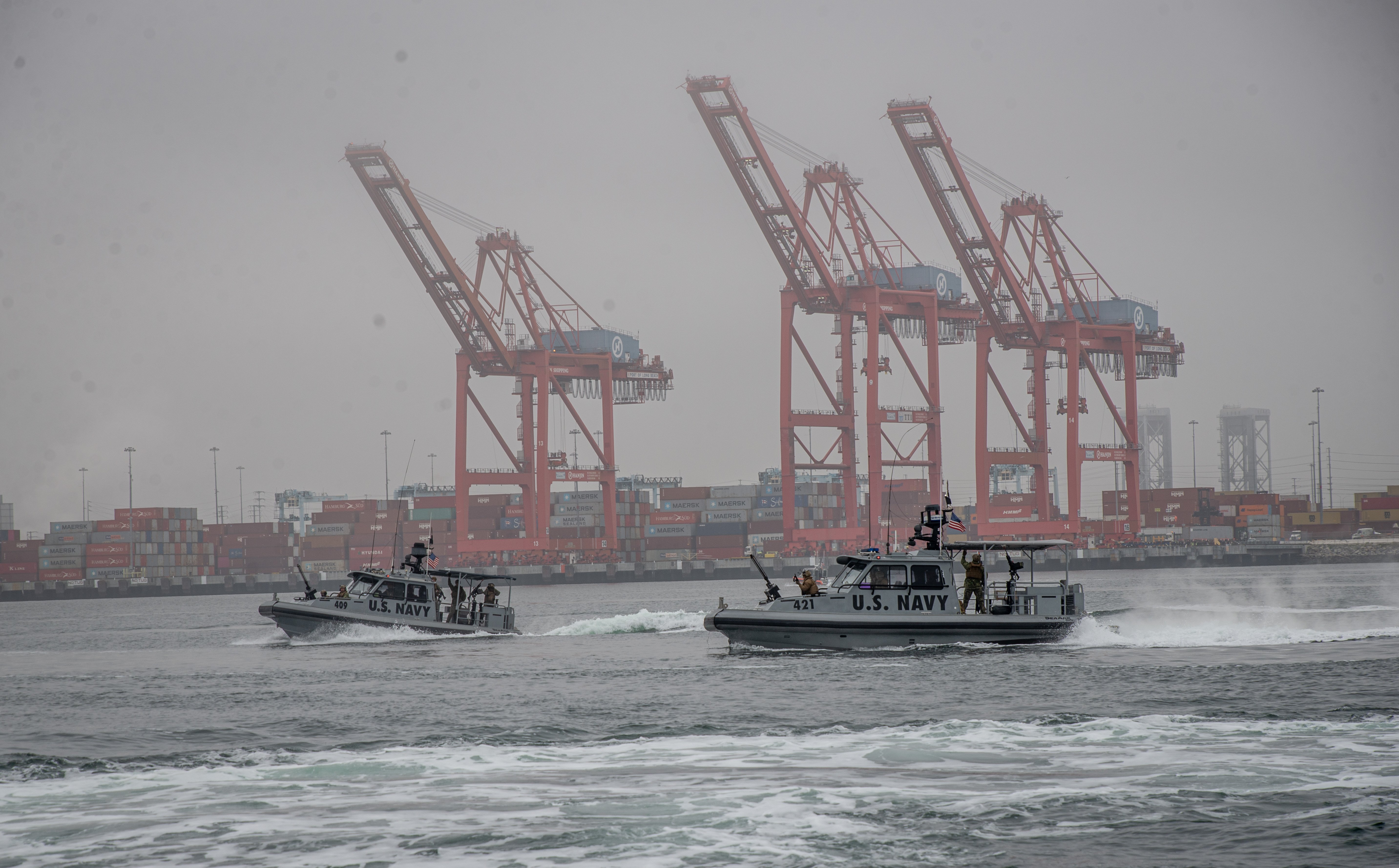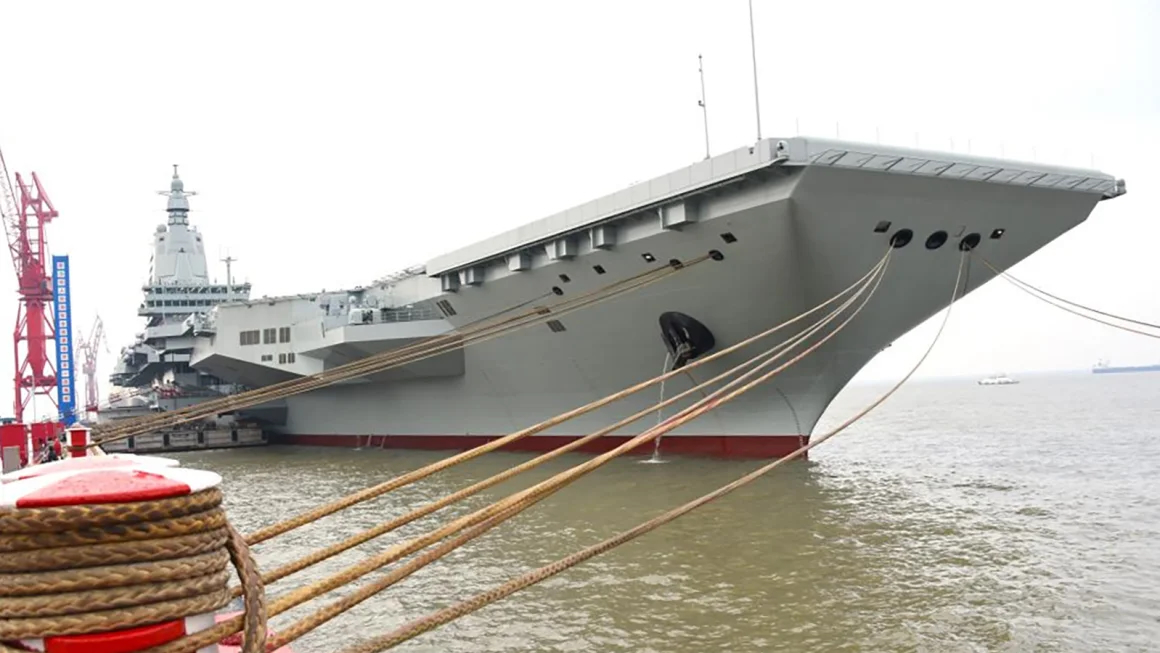
The White House on Wednesday announced a multi-billion dollar maritime infrastructure plan that would restart the domestic production of container cranes to address the cybersecurity threat from Chinese-made cranes operating in ports around the United States.
A key part of the plan would put more than $20 billion into infrastructure at American ports, including container crane production, in the next five years. The Biden administration would use grants, in addition to the Bipartisan Infrastructure Law and the Inflation Reduction Act, for the investment, according to a White House fact sheet released Wednesday.
Under the plan, Japan-based Mitsui Engineering & Shipbuilding would use its U.S. subsidiary to bring a container crane production capability back to the United States.
“PACECO has a deep history in the container shipping industry, manufacturing the first dedicated ship-to-shore container crane in 1958 as PACECO Inc., and it continued U.S.-based crane manufacturing until the late 1980s,” according to the fact sheet.
“PACECO intends to partner with other trusted manufacturing companies to bring port crane manufacturing capabilities back to the U.S. for the first time in 30 years, pending final site and partner selection.”
The announcement comes amid concern over the potential for China to hack maritime infrastructure, including Chinese-built cranes at the nation’s ports. About 80 percent of container cranes in the U.S. are built by China’s state-owned ZPMC, according to a report last year in The Wall Street Journal. The same report cited the cranes as a potential way for China to glean insight into American military logistics or for a bad actor to interfere with global commerce.
“Today’s actions are clear examples of the President’s work to invest in America, secure the country’s supply chains, and strengthen the cybersecurity of our nation’s critical infrastructure against 21st century threats – priorities his Administration has focused on relentlessly since taking office,” the White House said in the fact sheet.
The Biden administration announced the plan in an executive order. Following the EO, the Coast Guard will put its own measures in place to evaluate the cyber risk posed by Chinese-built cranes operating at commercial strategic ports throughout the U.S.
“Owners and operators of these cranes must acknowledge the directive and take a series of actions on these cranes and associated Information Technology (IT) and Operational Technology (OT) systems,” according to the fact sheet.
The new initiative will also empower the U.S. Coast Guard to deal with cyber concerns at U.S. ports and allow the service to create cyber hygiene rules for the Marine Transportation System.
“Now, the U.S. Coast Guard will have the express authority to respond to malicious cyber activity in the nation’s MTS by requiring vessels and waterfront facilities to mitigate cyber conditions that may endanger the safety of a vessel, facility, or harbor,” according to the White House. “The Executive Order will also institute mandatory reporting of cyber incidents – or active cyber threats – endangering any vessel, harbor, port, or waterfront facility.”
Several Republican lawmakers praised the Biden administration’s action, calling it “the right move” in a joint statement.
“This announcement does not end the threat, but it is a meaningful step to counter it,” Reps. Mike Gallagher (R-Wis.), Mark Green (R-Tenn.), August Pfluger (R-Texas) and Carlos Gimenez (R-Fla.) said in the statement.
“The follow-through will be essential. We will continue conducting a rigorous investigation into the threats posed by the CCP’s access to our ports. Our Committees will continue urging the Biden administration to strengthen the resilience of our critical infrastructure and to resolve vulnerabilities in our supply chains.”
Gallagher chairs the House Select Committee on China, while Green chairs the House Committee on Homeland Security. Gimenez chairs the House Homeland Security Committee’s subcommittee on transportation and maritime security, while Pfluger chairs the subcommittee on counterterrorism, law and enforcement and intelligence.





